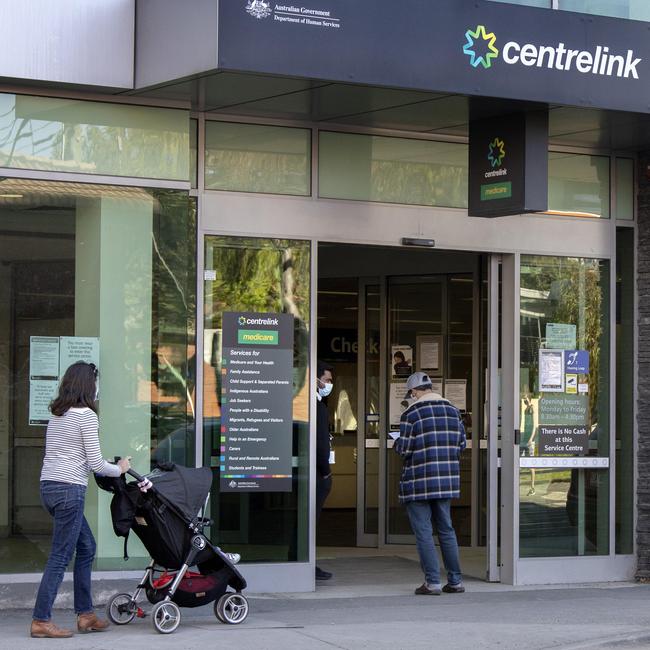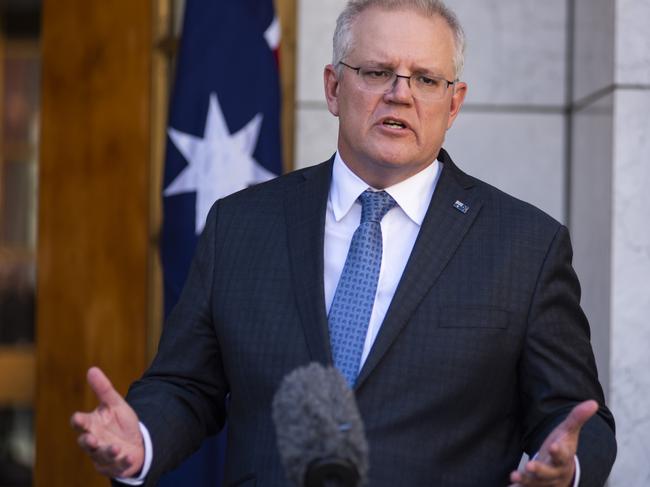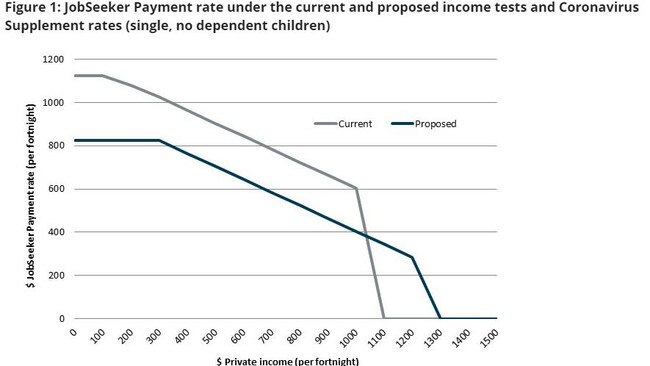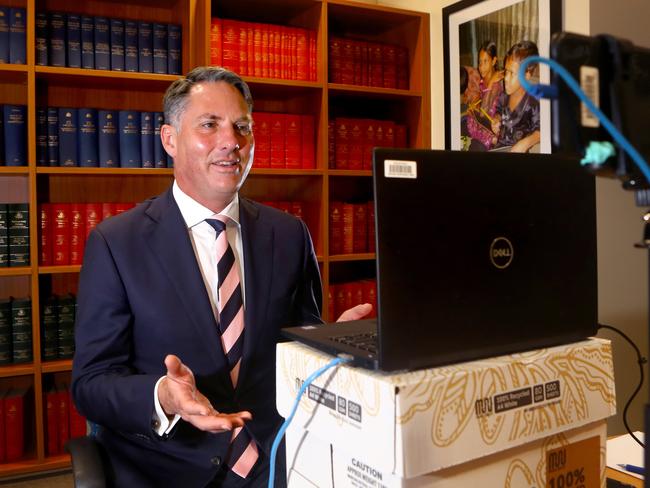Coronavirus Australia: Two million Aussie parents face having COVID-19 payments slashed
More than two million Aussies are about to have their monthly income slashed by $600 as a raft of unpopular changes come into affect.

More than two million Australians are facing uncertain financial futures, with their income set to be slashed by $600 a month in less than two weeks.
Prime Minister Scott Morrison first announced the welfare cuts in July, before Melbourne’s second wave of COVID-19 cases and the unprecedented decision to subject the city to a nightly curfew.
But despite the fact Victorians remain in lockdown, the Prime Minister is pressing ahead with plans to reduce a special coronavirus supplement by $300 a fortnight.
The changes are on top of the winding back of the JobKeeper allowance, which will also cut the wage subsidy for thousands of eligible workers by $600 a month or more for part-time workers.
The temporary coronavirus supplement was introduced in March, doubling the ‘dole’ or JobSeeker payments in March by $550 a fortnight.
But it isn’t just being paid to the unemployed, but an estimated two million Australians who also rely on other welfare payments including Austudy, Youth Allowance, the Parenting Payment and the Widow’s Allowance.
RELATED: JobKeeper hack that could earn Victorian workers over $500


RELATED: JobKeeper: Victorian workers forced to survive on $6 a day
The welfare boost designed to help people during the pandemic is being reduced by $300 a fortnight to $250 from September 24.
Asked on Friday if it was “cruel” to slash the wage subsidy when Victoria remained in lockdown, Home Affairs Minister Peter Dutton insisted what the Morrison Government was actually doing was “extending” the payment at a lower rate.
“We put in place the program for six months which has saved 700,000 jobs and the reality is that JobKeeper is needed, it needs to be extended and we are extending it,’’ he said.
“So it will go for another six months and we will review it at that time. But I hope that with the clean-up that is taking place in Victoria at the moment that this will get down to single digits within a couple of weeks and the borders can reopen.”


Labor’s deputy leader Richard Marles conceded he would not be capable of living off $800 a fortnight – the new rate of the Jobseeker unemployment rate.
“No,’’ he said.
“This has been a more prolonged phenomenon than we thought, particularly here in Victoria.
“I spoke to a travel agent in my electorate yesterday. Think about their business. They have got absolutely nothing.

“You wind down JobKeeper now and you are turning the lights out for that business. It has been around since 1940. We are gonna need travel agents in the future but to get us across this we need JobKeeper to continue for a while and I think that’s just common sense.”
A new research paper has warned that the cuts are also likely to hit just as unemployment peaks, particularly in Victoria, and jobs are harder to find.
“The $300 per fortnight rate reduction for the Coronavirus Supplement will reduce payments to more than 2.2 million recipients who are currently benefiting from the extra assistance,’’ the parliamentary library research paper warns.
“The reduction will occur in the December quarter of 2020 when the Government expects the unemployment rate to peak.
“However, the supplement still offers a much higher level of assistance than the standard rate of the qualifying payments.”
Under the changes the supplement was reduced from $550 to $250 per fortnight. However, the increased payments was also extended longer than originally expected.
But the unemployed will also be able to work more and earn more before losing welfare payments to encourage them to find work if they can.
While welfare groups have lobbied for the Jobseeker payment to be increased for over a decade, the report also notes that the current design of the Coronavirus Supplement acts as a disincentive to increase earnings for those near the cut-off point.
However, the reinstatement of the assets test on September 25 may see a reduction in the number of income support recipients as those with significant assets become ineligible.



